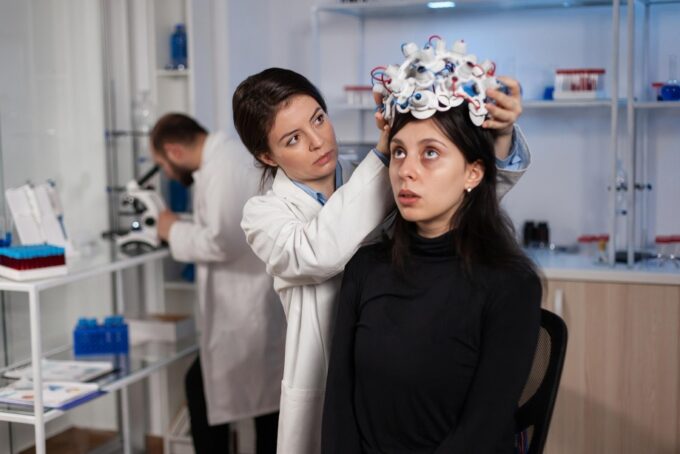Caring for children with congenital neurological challenges is a journey filled with dedication, hope, and continuous learning. While medical interventions are crucial, one often underestimated yet vital aspect is Nutrition & Brain Development. The connection between what children eat and how their brains grow, especially when facing neurological obstacles, is both profound and promising. In this blog, we will explore the role of nutrition in supporting cognitive function, enhancing developmental milestones, and promoting quality of life for children facing these unique challenges.
Understanding Congenital Neurological Challenges
To begin with, congenital neurological disorders are conditions present at birth that affect the brain, spinal cord, or nervous system. These may include cerebral palsy, spina bifida, microcephaly, and certain genetic disorders. Symptoms often vary from mild delays in speech and motor skills to more severe physical and cognitive impairments.
Even though each condition is distinct, they all share one critical requirement—comprehensive, multidisciplinary support. Among these, Nutrition & Brain Development stands out as a pivotal component that can significantly impact a child’s overall progress.
Why Nutrition Matters More Than Ever
The early years of a child’s life are when the brain undergoes rapid growth. During this time, the brain forms millions of neural connections every second. For children with congenital conditions, this developmental window becomes even more crucial.
What they eat directly affects their:
-
Cognitive abilities
-
Memory and learning
-
Attention span
-
Emotional stability
-
Immune system
Thus, focusing on Nutrition & Brain Development isn’t just beneficial—it’s essential.
Key Nutrients That Support Brain Health
Next, let’s explore some of the most important nutrients that contribute to optimal brain development, especially in children with neurological conditions.
1. Omega-3 Fatty Acids
These essential fats are vital for the formation of brain cell membranes and neurotransmitters.
Sources:
-
Fatty fish like salmon and sardines
-
Chia seeds, flaxseeds
-
Walnuts
2. Iron
Iron is crucial for oxygen delivery to the brain. A deficiency can result in poor attention, fatigue, and delayed development.
Sources:
-
Spinach
-
Lentils
-
Fortified cereals
3. Zinc and Magnesium
These minerals help regulate communication between nerve cells and reduce neuroinflammation.
Sources:
-
Pumpkin seeds
-
Whole grains
-
Beans
4. Choline
This lesser-known nutrient supports brain cell structure and memory function.
Sources:
-
Eggs
-
Liver
-
Peanuts
5. Vitamin B Complex
These vitamins boost energy production and support cognitive performance.
Sources:
-
Whole grains
-
Leafy vegetables
-
Bananas
These nutrients are building blocks in the puzzle of Nutrition & Brain Development.
Building a Child-Friendly Brain-Boosting Diet
Designing a balanced diet that meets a child’s neurological needs requires a strategic approach. However, with creativity and commitment, it is achievable. Here’s how to make it more manageable:
-
Prioritize whole foods over processed snacks
-
Introduce variety in textures and colors to stimulate appetite
-
Offer small, frequent meals to avoid overwhelming the child
-
Use supplements cautiously, and only under medical guidance
Moreover, involving children in preparing their meals—even in small ways—can encourage them to develop positive associations with food.
Supporting Children with Feeding Challenges
Children with congenital neurological disorders may experience difficulties like oral motor issues, poor coordination, or swallowing problems. Naturally, this makes nutrition more complex. In such cases, it becomes critical to find adaptive strategies.
Some approaches include:
-
Offering pureed or mashed versions of nutrient-rich foods
-
Using straws or adaptive utensils to improve self-feeding
-
Including high-calorie smoothies packed with healthy fats and proteins
Here too, Nutrition & Brain Development remains the guiding principle, helping caregivers find the right blend of nutrition and comfort.
The Role of Multidisciplinary Support
Optimal care involves collaboration between healthcare professionals—pediatricians, occupational therapists, speech therapists, and most importantly, neurologists. Nutritionists also play a key role in tailoring meal plans based on the child’s medical and developmental profile.
For a holistic approach, parents must communicate regularly with the care team to evaluate nutritional goals, track progress, and adjust strategies accordingly. Thus, consistent support enhances the impact of Nutrition & Brain Development interventions.
Encouraging Progress Through Patience and Persistence
Supporting a child’s cognitive development through nutrition isn’t an overnight process. While progress may appear slow, every step forward—no matter how small—is meaningful. By embracing Nutrition & Brain Development as a long-term commitment, caregivers can give their children the best chance at reaching their full potential.
Remember, while challenges may persist, good nutrition provides the brain with the tools it needs to adapt, repair, and grow.
Conclusion
In summary, a well-nourished brain is a stronger brain. For children with congenital neurological challenges, the right nutrients can fuel significant developmental gains.
That’s why integrating Nutrition & Brain Development into everyday life is one of the most empowering things parents and caregivers can do.
For individualized advice and expert support, consult Dr. Vivek Mundada, a trusted neurologist in Dubai, who specializes in pediatric neurology and nutrition-focused interventions.
FAQs
Q1. Can nutrition alone improve my child’s neurological condition?
A: While nutrition cannot cure congenital neurological conditions, it plays a critical role in improving brain function, energy levels, and overall quality of life when combined with medical and therapeutic care.
Q2. What if my child refuses to eat healthy foods?
A: This is a common concern. Try blending nutritious ingredients into familiar meals, using fun shapes or colors, and introducing new items gradually. Patience is key.
Q3. Are supplements recommended for children with neurological disorders?
A: Supplements may be helpful in specific cases but should always be given under the guidance of a medical professional. A well-balanced diet is the ideal first step.



